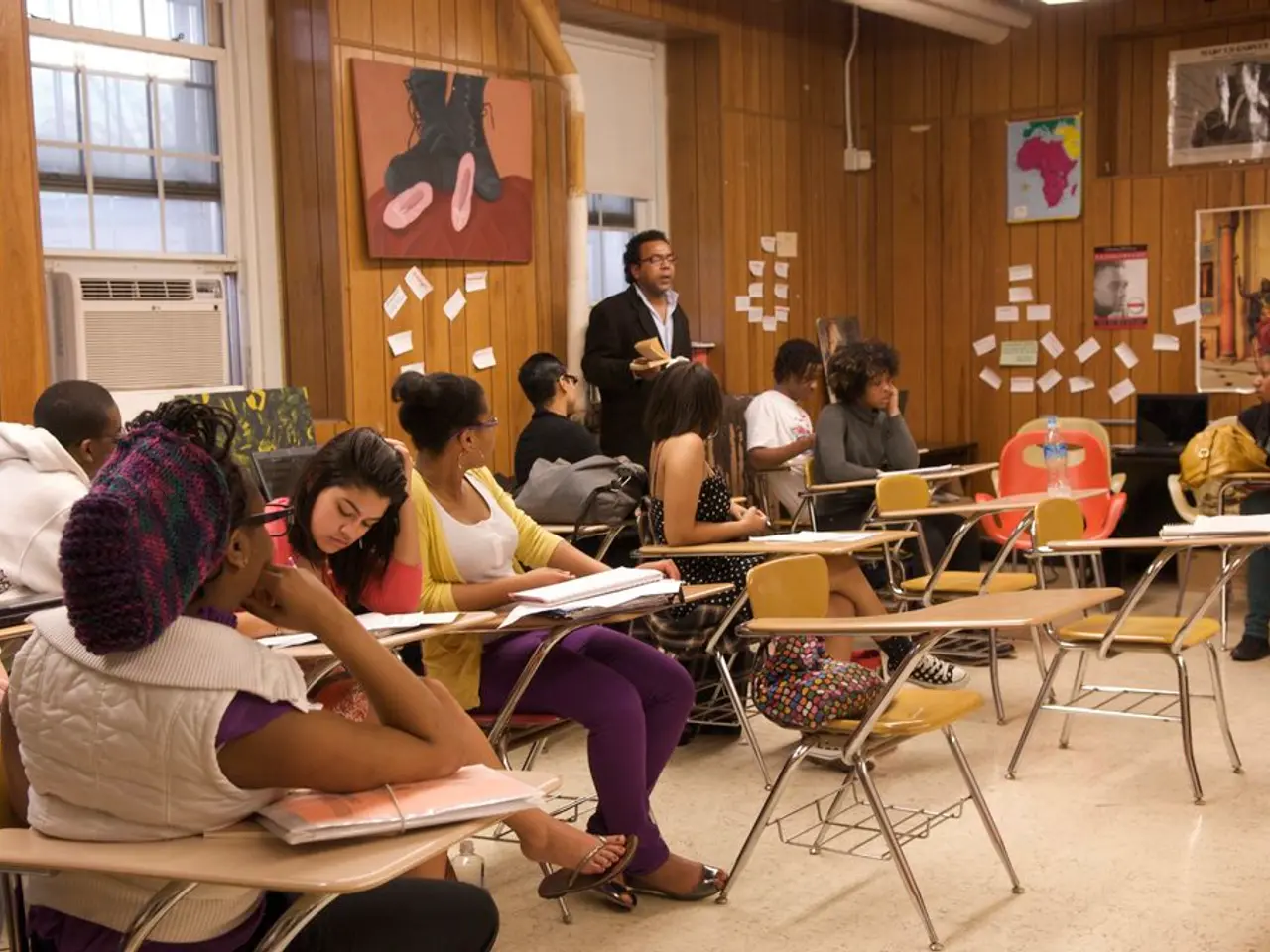five primary educational approaches in teaching methodology
In the ever-evolving world of education, various pedagogical models have emerged, each with its unique characteristics and benefits. These models, ranging from the traditional to the modern, shape teaching and learning processes, catering to diverse student needs and preferences.
Traditional Model
The Traditional Model, a staple in many educational institutions, is teacher-centered, emphasizing rote memorization, direct instruction, and standardized assessments with single correct answers. The curriculum is content-focused and sequential, making it efficient for knowledge transmission and foundational for basic literacy and numeracy skills.
Constructivist Model
The Constructivist Model, on the other hand, is learner-centered, with students actively constructing knowledge using their prior experiences. This model encourages critical thinking, problem-solving, and the application of concepts in real-world contexts, with the teacher acting as a facilitator rather than a sole knowledge provider.
Collaborative Model
The Collaborative Model emphasizes social interaction and teamwork, with learning occurring through sharing ideas and group problem-solving. Content integration often involves multiple perspectives and interdisciplinary topics, fostering communication and interpersonal skills, and preparing learners for real-world collaborative work environments.
Inquiry-Based Model
The Inquiry-Based Model encourages learners to explore questions, investigate problems, and develop solutions. This model is effective in science, humanities, and arts education, as it develops research skills and scientific thinking, supports learner independence and curiosity, and enhances problem-solving ability and adaptability.
Personalized Learning Model
The Personalized Learning Model is a modern, forward-thinking approach to education. It tailors education to individual learners’ needs, strengths, interests, and pace, emphasizing flexible pathways and learner autonomy with technology often used to support customization. This model boosts engagement and motivation, addresses diverse learning styles and needs, and allows mastery learning and pacing according to individual readiness.
Together, these models offer a spectrum from teacher-directed to learner-centered approaches, enabling educators to select or blend methods to best suit context, content, and learner needs. The Inquiry-Based Model reinforces independent learning, while the Personalized Learning Model encourages goal-setting and self-assessment.
Technology has made it easier to implement personalized and inquiry-based learning, with tools like learning management systems, adaptive software, and interactive platforms allowing teachers to tailor instruction and provide instant feedback. The Personalized Learning Model often leverages technology and data, using data-driven insights to adjust teaching.
Assessment strategies vary depending on the model. For instance, the Inquiry-Based Model emphasizes the process of discovery, not just the answer, while the Personalized Learning Model uses data-driven insights to assess learning progress and adjust instruction accordingly.
Many educators use a hybrid model, combining different strategies to best meet the needs of their students. When students are taught using methods that align with their learning style, interests, and pace, motivation tends to increase, providing a supportive and inclusive learning experience.
Understanding pedagogical models can benefit administrators, curriculum designers, parents, and even students. More progressive schools are integrating constructivist and collaborative models to support diverse learners and encourage active engagement. Teachers in the Inquiry-Based Model serve as mentors and research guides, while those in the Personalized Learning Model help students become independent and responsible learners.
The Traditional Model remains effective for foundational skills and clear assessment protocols, making it one of the most widely used pedagogical models, especially in public school systems. However, the rise of the Personalized Learning Model suggests a shift towards a more student-centered, flexible, and adaptive approach to education.
Cognitive psychology, a branch of psychology focusing on mental processes such as learning and memory, can provide valuable insights into the effectiveness of different educational models, particularly the Constructivist Model, which encourages learners to construct knowledge using their prior experiences, a process closely linked to how individuals typically learn and remember information.
Education-and-self-development resources focusing on learning strategies can help students succeed in various pedagogical environments, such as the Personalized Learning Model, which tailors education to individual learners' needs, strengths, and interests, promoting self-directed learning and personal growth.




